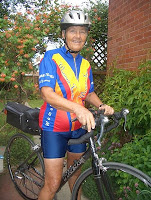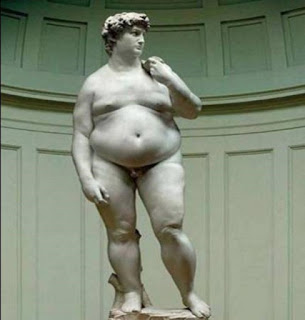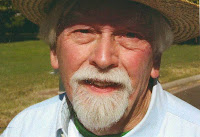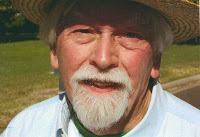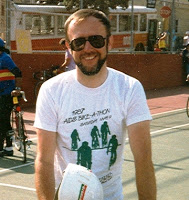Until later in life I never gave a lot of thought to making choices. I had my rules of conduct and, I suppose, used that as a guide to choosing. I did make choices everyday of my life, but I never think of it as “shall I do this or shall I do that.”
It all seemed to come quite naturally and was part of a routine or structure. Back in those days we didn’t have the options that present themselves today. I do believe life was simpler. We chose a path to follow and took whatever came along on that path. We made the most of what was good enough and we made good enough work for us.
I don’t remember choosing between a man and a woman until many years later when I became aware that I had the choice. Even though I was attracted to women, marrying one or even spending my life with one was not an option for me back in 1950. So I, a homosexual woman, married a man. Nevertheless, you will never hear me saying today, “Aw sucks, darn! I spent 1/2 my adult life with a man.” No, I will never say that; those years were good enough, and good enough was great then. I still feel that good enough was and is great.
It serves no purpose to regret any of the paths I followed in my younger years. Had I felt I had more choices, my life would be different and that is hard for me to imagine right now. I love my life the way it is and the way it has been. I love my children and my grandchildren as well as my life partner and spouse. I would not have my children and grandchildren if I had chosen differently in 1950. I probably would not have my beloved Gill had I chosen differently back then. So, I’m glad I went with “good enough,”
I often hear contemporaries say, “I lived in the best of times.” Aw shucks, I’m going to go ahead and say the same thing. If I suddenly, magically became a young person, I would be mind boggled by all the choices presented to me every day. Not just among the plethora of consumer products put in front of us daily, but the choices of life style, career paths, subjects available to study, places to visit, etc.
I am aware that there are many people in this world who have no choice except to take the easiest path to survival. Mind you, I do not believe that desperate situations, inaccessibility to basic, life sustaining resources is good enough, by any means. Such inequity that exists in the world is very wrong. I am blessed that I have never been in such a situation. So I am keeping the discussion here to choices that have been made available to me throughout my life and that have affected my life.
I never spend too much time choosing the right consumable product because I honestly do not feel it’s that important. I like to think my time is better spent in other areas of life which may or may not require making choices. For example, I know I should exercise so, if it is time to do that, It is already on my agenda, I do not have to make a choice about that. The choice is merely between the gym, the bicycle ride, the walk around the neighborhood, etc.
When it comes to choosing clothes for myself at the store, I confess I am not very diligent. Often I come home with something that is not good enough. Then standing in front of my mirror it’s “Aw shucks, this just isn’t what I thought it was.” I think the stores have trick mirrors that make things look better on you than they really are. I have learned in my later years that my lovely wife can pick out clothes for me much better than I can. So I don’t go shopping for clothes unless she will come with me. Usually I get her article of choice home and realize it’s not just good enough, it’s perfect. I don’t buy too many clothes anymore ‘though. Most of the stuff I have held on to are the things that were good enough when I bought them so they are good enough now, even if they are 20-30 years old.
Fortunately as I approach my 80’s I have everything I need and do not find myself having to make choices about what to buy. The choice of what to do comes up occasionally, but that usually has been predetermined and I simply follow an already structured agenda. I like structure. Maybe that’s because I don’t want to be making choices all the time.
I’m afraid I have almost driven my lovely wife crazy with this characteristic or mine.
“Shall we go to Mexico or Hawaii for our vacation,” she asks. My answer is truthfully, “I don’t care, or I don’t know.” “Well, which would you rather do?” she asks. “How do I know,” I answer. “I’ve never been to either place.” Poor Gill.
On the other hand I hate being wishy-washy. If a decision has to be made, I will gather as much information as I conveniently can and just pick one. Too much deliberation just complicates it. It usually turns out that it was good enough and it was great. I can’t ever remember coming home from a pleasure trip and saying “Aw shucks, we should have gone to that other place.” This “aw shucks” situation should be avoided at all cost. But I truly belief it is totally unlikely to occur in my life, because I’m sure most any other choice would have been good enough as well, and therefore the perfect choice.
© 6 April 2015
About the Author
Betsy has been active in the GLBT community including PFLAG, the Denver Women’s Chorus, OLOC (Old Lesbians Organizing for Change), and the GLBT Community Center. She has been retired from the human services field for 20 years. Since her retirement, her major activities have included tennis, camping, traveling, teaching skiing as a volunteer instructor with the National Sports Center for the Disabled, reading, writing, and learning. Betsy came out as a lesbian after 25 years of marriage. She has a close relationship with her three children and four grandchildren. Betsy says her greatest and most meaningful enjoyment comes from sharing her life with her wife of 30 years, Gillian Edwards.
